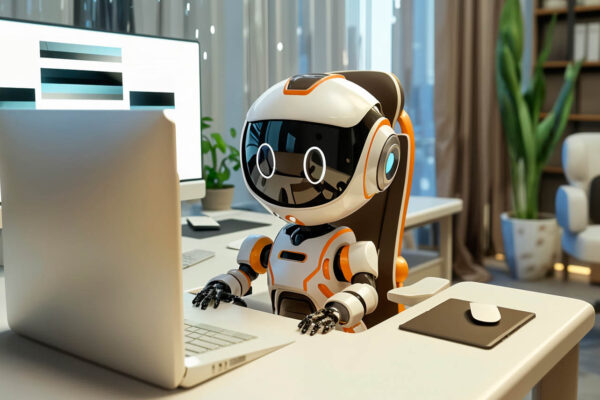Artificial Intelligence (AI) has rapidly moved from being a futuristic concept to an integral part of modern technology. Across the world, industries are being reshaped by AI, and India’s IT sector is no exception. The impact of AI in IT jobs is both exciting and challenging. While automation replaces some repetitive roles, it also creates new opportunities for innovation and skill development.
1. How AI Is Changing the IT Landscape
AI has become a driving force behind many digital transformations. In the IT industry, it is being used for:
- Automating repetitive tasks such as software testing, code generation, and system monitoring.
- Enhancing cybersecurity by detecting threats faster and predicting vulnerabilities.
- Improving customer service through AI-powered chatbots and virtual assistants.
- Supporting decision-making with predictive analytics and intelligent data processing.
As a result, companies can complete complex projects faster and with fewer errors, improving efficiency across departments.
2. The Positive Side: New Job Opportunities
Although some fear job losses, AI has actually created new roles in the IT sector. These include:
- AI and Machine Learning Engineers
- Data Scientists and Data Analysts
- Cloud AI Specialists
- Automation Architects
- Prompt Engineers and AI Trainers
These jobs require a combination of technical expertise, creativity, and analytical thinking. Moreover, the growing demand for AI-based solutions in India means that professionals who adapt early will have a strong advantage.
3. The Challenge: Job Displacement and Skill Gaps
While AI creates opportunities, it also disrupts traditional job roles. Positions like manual testers, data entry operators, and basic support staff are gradually being replaced by automated systems.
However, this doesn’t mean these jobs will vanish completely. Instead, professionals need to reskill and upskill to stay relevant in the changing job market.
For example, a software tester can transition into an AI test automation engineer by learning tools like Selenium, Appium, or TensorFlow.
4. The Indian IT Industry’s Adaptation
India’s IT industry — with giants like TCS, Infosys, Wipro, and Tech Mahindra — has embraced AI aggressively. Many companies now integrate AI-powered analytics, robotic process automation (RPA), and NLP-based customer solutions into their services.
According to NASSCOM, AI could add nearly $500 billion to India’s GDP by 2025, showing how vital AI will be to the country’s economic growth. As a result, IT companies are actively training employees in AI and automation tools to prepare for the future.
5. How IT Professionals Can Prepare for the AI Era
If you are working in IT, it’s essential to stay ahead of the curve. Here are a few steps to remain future-ready:
- Learn AI and ML tools like Python, TensorFlow, and PyTorch.
- Understand cloud integration with platforms such as AWS, Azure, and Google Cloud.
- Focus on data analytics and visualization tools like Power BI and Tableau.
- Develop soft skills such as problem-solving, adaptability, and collaboration.
- Take AI certification courses from platforms like Coursera, edX, or Udemy.
The more you learn, the more valuable your skills become in the AI-driven economy.
6. The Future of IT Jobs with AI
The future of IT jobs in India is not about humans versus machines, but humans working alongside intelligent systems. AI will handle repetitive and analytical tasks, allowing humans to focus on strategy, innovation, and creativity.
By embracing AI as a partner rather than a threat, IT professionals can unlock endless possibilities for career growth and technological advancement.
The impact of AI in IT jobs is undeniable — it is transforming roles, creating new opportunities, and redefining how we work. For Indian professionals, this is the perfect time to adapt, learn, and evolve. Those who invest in AI-driven skills today will become the leaders of tomorrow’s digital revolution.
Also read : Future of AI in India: Trends and Impact





